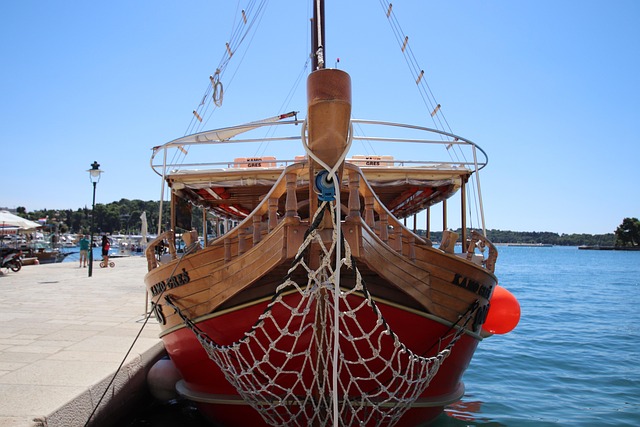Desert ecosystems in cities like Dubai face pressure from tourism despite their unique biodiversity. To preserve these environments, Dubai prioritizes sustainable practices including responsible tourism and education through Dubai Guided Tours. The city's conservation efforts involve renewable energy, water conservation, community engagement, and innovative technology to protect native flora and fauna. Global collaboration is crucial for tackling the challenges of desert ecosystem preservation, with initiatives like transboundary conservation areas facilitating knowledge sharing and best practices implementation.
“Explore the captivating world of eco-friendly desert conservation initiatives, where arid landscapes meet sustainability. From understanding the unique challenges of desert ecosystems to innovative technologies like drones and AI monitoring, this article delves into successful strategies. Discover how Dubai sets a precedent with its environmental commitment, including guided tours that educate visitors. Learn about protecting native flora and fauna, sustainable water management, community involvement, and global partnerships essential for the long-term health of these remarkable environments, with a special focus on Dubai’s guided tours.”
- Understanding Desert Ecosystems: The Unique Challenges of Conservation in Arid Regions
- Dubai's Commitment to Environmental Sustainability: A Model for Desert Conservation
- Guided Tours as a Tool: Educating and Engaging Visitors for Positive Impact
- Protecting Native Flora and Fauna: Species-Specific Conservation Efforts
- Sustainable Water Management: Ensuring Life in the Deserts
- Community Involvement: Empowering Local Populations for Long-Term Success
- Innovative Technologies: Using Drones, Satellite Imagery, and AI for Desert Monitoring
- International Collaboration: Global Partnerships for Comprehensive Desert Conservation
Understanding Desert Ecosystems: The Unique Challenges of Conservation in Arid Regions

Desert ecosystems, known for their harsh conditions and sparse vegetation, present unique challenges for conservation efforts. These environments are incredibly fragile, with limited water sources and extreme temperatures that make them highly sensitive to human impact. The arid regions, often overlooked due to their seemingly inhospitable nature, are home to a diverse range of plant and animal species adapted to these harsh conditions. Conserving these areas requires a deep understanding of the intricate balance between the desert’s natural processes and human activities.
In places like Dubai, where guided tours showcase the region’s beauty, it’s crucial to strike a delicate balance. As tourism grows in popularity, so does the pressure on these ecosystems. Conservation initiatives must focus on sustainable practices, such as promoting responsible tourism and educating visitors about the importance of preserving the desert’s native flora and fauna. By addressing these challenges, we can ensure that the unique landscapes and biodiversity of arid regions thrive for future generations to explore and appreciate, whether through guided tours or other conservation-focused activities.
Dubai's Commitment to Environmental Sustainability: A Model for Desert Conservation

Dubai, known for its stunning architecture and luxurious lifestyle, has emerged as a leader in environmental sustainability, setting an example for desert conservation worldwide. The city-state’s commitment to preserving its unique desert ecosystem is evident through various initiatives that balance development with eco-friendly practices. One notable aspect is Dubai’s focus on renewable energy sources, where it has successfully integrated solar power into its urban landscape. These efforts not only reduce the region’s carbon footprint but also inspire other cities and countries to adopt sustainable energy solutions.
Additionally, Dubai offers innovative approaches to water conservation in arid regions. Through advanced desalination technologies and efficient irrigation systems, the emirate ensures a steady supply of fresh water for its residents and visitors. When exploring Dubai on guided tours, tourists can learn about these sustainability efforts, highlighting how responsible tourism can coexist with desert preservation. This dual focus on environmental stewardship and economic growth makes Dubai a model for other regions aiming to protect their natural resources while fostering prosperity.
Guided Tours as a Tool: Educating and Engaging Visitors for Positive Impact

In the quest for sustainable desert conservation, Dubai Guided Tours have emerged as a powerful tool to educate and engage visitors. These tours offer a unique opportunity to showcase the region’s natural beauty while raising awareness about environmental stewardship. By providing informative and interactive experiences, tourists gain insights into the delicate ecosystem of the desert, fostering a deeper connection and understanding of the need for conservation.
Guided by local experts, Dubai Guided Tours navigate visitors through the vast expanse of sand dunes, rare oases, and diverse wildlife habitats. During these journeys, participants learn about traditional sustainable practices of local communities, as well as modern conservation efforts to preserve the desert’s unique characteristics. This educational aspect not only enriches the tourist experience but also inspires a sense of responsibility, encouraging visitors to become advocates for eco-friendly desert conservation initiatives.
Protecting Native Flora and Fauna: Species-Specific Conservation Efforts

In vast deserts like those found in regions like Dubai, protecting native flora and fauna is a delicate yet crucial task for conservationists. Many unique species have adapted to survive in these harsh environments, making them invaluable components of the ecosystem. Conservation efforts often involve meticulous species-specific strategies to safeguard these lifeforms. For instance, rare desert plants may require protection from overgrazing or habitat destruction caused by human activities, such as those commonly encountered during Dubai Guided Tours.
Specific animal populations, like certain reptiles and birds, face threats from climate change and poachers. Conservation initiatives may include establishing protected areas, implementing strict regulations against illegal hunting and trading, and conducting research to better understand these species’ needs. Such targeted approaches play a vital role in maintaining ecological balance and ensuring the long-term survival of both plant and animal life native to desert regions.
Sustainable Water Management: Ensuring Life in the Deserts

In the heart of arid landscapes, where water scarcity is a persistent challenge, sustainable water management practices play a pivotal role in preserving desert ecosystems. Eco-friendly conservation initiatives in regions like Dubai, renowned for its bustling metropolis and guided tours, are transforming the way we approach water utilization. These efforts focus on implementing innovative solutions to conserve and distribute limited water resources effectively. By adopting advanced technologies, such as desalination processes and efficient irrigation systems, these initiatives ensure that precious water is not only preserved but also utilized in a manner that supports the unique biodiversity of desert habitats.
Through careful planning and community involvement, Dubai and similar desert regions are leading the way in sustainable water management. They are promoting water recycling and reuse programs, ensuring that treated wastewater is safely incorporated back into the environment without harming delicate ecosystems. These strategies not only safeguard the future of desert life but also contribute to a greener and more resilient urban landscape, making them key components of any successful eco-friendly desert conservation initiative.
Community Involvement: Empowering Local Populations for Long-Term Success

In any conservation effort, especially in sensitive desert ecosystems, community involvement is key to long-term success. Empowering local populations ensures that they become stewards of their environment, driving sustainable practices and protecting natural resources for future generations. For instance, in Dubai Guided Tours, where tourism has grown significantly, engaging the local communities can help balance economic development with ecological preservation. By educating and involving residents in conservation initiatives, such as sustainable agriculture, water management, and wildlife monitoring, deserts can be protected while creating opportunities for community growth.
This collaborative approach fosters a deep sense of ownership and pride among locals, leading to more effective conservation strategies. When people understand the value of their environment and see direct benefits from its protection, they are more likely to participate actively in preserving it. As Dubai Guided Tours have shown, community-driven conservation initiatives can result in thriving ecosystems that support both nature and local lifestyles.
Innovative Technologies: Using Drones, Satellite Imagery, and AI for Desert Monitoring

In the vast and often harsh landscapes of deserts, monitoring and conservation efforts face unique challenges. This is where innovative technologies step in as powerful allies. Drones, for instance, offer a bird’s-eye view, enabling detailed surveys of remote areas that are difficult to access on foot. These aerial vehicles can quickly scan vast stretches of desert terrain, collecting data on vegetation health, land usage changes, and even animal movements.
Satellite imagery, another game-changer, provides continuous and comprehensive monitoring from space. Advanced AI algorithms can analyze these images to detect subtle variations in the desert’s landscape, helping researchers track erosion rates, water body fluctuations, and the impact of human activities. By combining drone data with satellite imagery, conservationists in Dubai guided tours regions can make informed decisions, ensuring sustainable practices that preserve the delicate balance of these remarkable ecosystems.
International Collaboration: Global Partnerships for Comprehensive Desert Conservation

The conservation of deserts, often overlooked due to their harsh conditions, requires a global effort and collaboration among nations. International partnerships play a pivotal role in comprehensive desert conservation initiatives. Organizations and governments worldwide are joining forces to address the unique challenges faced by these ecosystems, particularly in regions like Dubai, known for its guided tours showcasing both urban development and desert landscapes.
These collaborations facilitate knowledge sharing, resource pooling, and best practices implementation. By working together, experts can develop sustainable strategies to protect endangered species, combat desertification, and promote eco-friendly tourism. For instance, regional agreements enable the establishment of transboundary conservation areas, ensuring the preservation of diverse ecosystems and habitats across deserts, fostering a harmonious balance between nature and human activities, including responsible Dubai guided tours.
In conclusion, eco-friendly desert conservation initiatives require a multifaceted approach. From understanding unique ecosystem dynamics in arid regions to leveraging innovative technologies and fostering community involvement, each strategy plays a crucial role in preserving these fragile environments. As seen in Dubai’s commitment to environmental sustainability and the success of guided tours, collaborative efforts can lead to positive change. By protecting native flora and fauna, managing water resources sustainably, and engaging local populations, we can ensure the long-term health of desert ecosystems. International partnerships further enhance these conservation efforts, showcasing a holistic approach necessary for comprehensive desert protection. Dubai Guided Tours serve as an inspiring model, demonstrating how education and engagement can drive positive impact in these remarkable environments.
